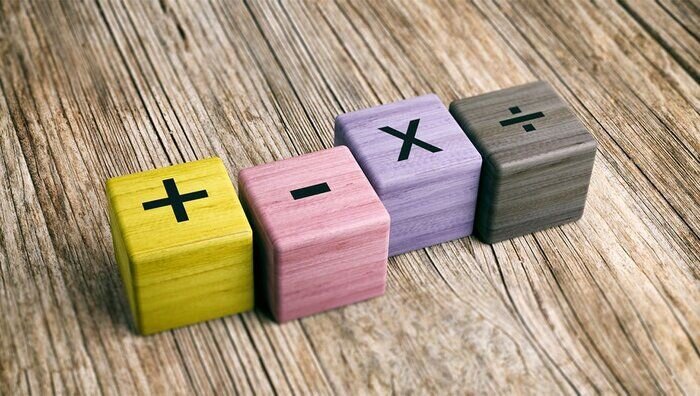Have you been keeping up with Word Genius? This month, we celebrated April Fool’s Day with a word for being playfully mischievous. We also learned a word for a person who is easy to get along with and a word for enabling a person to discover or learn something for themselves — perfect for reevaluating goals and hobbies a quarter of the way through the year. Refresh your memory of the origins, the “did you knows,” and the interesting truths behind every word-of-the-day that entered your inbox in April 2021.
April 1, 2021 — Waggish
What does it mean? Humorous in a playful, mischievous, or facetious manner.
Where does it come from? This word finds its roots in the Middle English word waggen, either a verb referring to the act of moving something back and forth or a noun describing a person who uses mischievous humor. Waggen originated from the Old Norse words vaga (to sway) and vagga (cradle).
Did you know? Waggish describes someone or something that is humorous in a playful way, and the word's prefix is used for similar effect. “Wag” is a noun that directly means a class clown or joker, while “waggery” describes a situation of general merriment and mischievousness.
April 2, 2021 — Northeaster
What does it mean? A storm or wind blowing from the northeast, especially in New England.
Where does it come from? The word northeaster developed as a description of the powerful northeast winds that cause storms in the New England region of the United States.
Did you know? A northeaster, often contracted to be called a nor’easter, can happen year round, which is why people might get a spring nor’easter composed of rain and winds and a winter nor’easter bringing piles of snow in the same year. However, the storms are most likely to be strongest between September and April. These winter nor’easters can cause billions of dollars in damage, so batten down the hatches if you’re anywhere near one.
April 3, 2021 — Bobtail
What does it mean? Bobtail can either mean “a docked tail of a horse or dog” or “cut short; abbreviated.”
Where does it come from? This word is thought to have come about from a combination of the noun “bob” (a short haircut) and “tail.”
Did you know? In order to save time for the listener, some audiobooks use a bobtail script rather than the full text of the book. If you would like to listen to the full-text of a book, make sure to check whether the audiobook you’re purchasing is full-text or abridged.
April 4, 2021 — Simpatico
What does it mean? Simpatico can either refer to a person who is “likable and easy to get along with” or to something “having or characterized by shared attributes or interests; compatible.”
Where does it come from? This word is credited with developing in both Italian and Spanish, most likely from each respective language’s word for sympathetic.
Did you know? Conventions are a perfect place to find simpatico people who share similar interests. Conventions usually have panels of experts and events corresponding to a specific interest, but there’s also plenty of time to mingle with fellow-minded folks. From Comic Cons to Book Cons, there’s a convention for everyone.

April 5, 2021 — Vulgate
What does it mean? Vulgate can either mean “a commonly recognized text or edition, as of the Iliad” or “common or colloquial speech.”
Where does it come from? This word originated from the Latin words vulgata (a written edition for the general public) and vulgus (a word meaning “common people”).
Did you know? Lexicographers, or people who compile and edit dictionaries, choose words by both examining those in widespread use and evaluating the probability of the word remaining in use for a significant period of time. Some words that develop in vulgate but are widely used enough can be added to the dictionary, including slang or playful combinations like “hangry.”
April 6, 2021 — Fettle
What does it mean? Fettle can either mean “condition” or to “make or repair (something).”
Where does it come from? While the word fettle developed as a verb meaning “to prepare oneself or get ready” in Late Middle English, it originated from the Old English word fetel (strip of material) and the Germanic word fessel (chain, band).
Did you know? Old vehicles displayed in museums and in classic shows seem to naturally remain in fine fettle, but a lot of care goes into maintaining their condition. Vehicles are often already donated or loaned in relatively pristine conditions, and staff determine whether it should be cleaned or kept in its original state. Workers also follow meticulous instructions from experts to keep cars gleaming.
April 7, 2021 — Staccato
What does it mean? Staccato can either be a noise “consisting of a series of sounds that are each sharply separated from the others” or “a series of short, sharply separated sounds or words.”
Where does it come from? This word evolved from Italian, where it translates to “disconnected.”
Did you know? Staccato also exists in the world of music. Staccato notes have spaces between them for silence, which creates the sharply separated sounds the music is known for. Its opposite is legato, notes that are connected and played with no silence or pauses between them.
April 8, 2021 — Inosculate
What does it mean? Join by intertwining or fitting closely together.
Where does it come from? Inosculate developed from a combination of the words “into” and the Latin word osculare, which means “to provide with a mouth or outlet.”
Did you know? Many living creatures inosculate in a symbiotic relationship, depending on each other to survive and thrive. For example, remora fish share a symbiotic relationship with sharks and some whales; they attach themselves onto the larger animal, helping to keep them clean and seeking shelter from predators.
April 9, 2021 — Synecdoche
What does it mean? A figure of speech in which a part is made to represent the whole or vice versa.
Where does it come from? While synecdoche became widely used through Late Middle English, it originated from the Greek word sunekdokhē— a combination of the words sun (together) and ekdekhesthai (to take up).
Did you know? Despite the complicated spelling of the word, synecdoche is used quite commonly. Some examples are saying America when referring to the United States, saying a statement has been put out by the company when one means a spokesperson, and referring to sports teams by their nicknames.

April 10, 2021 — Heuristic
What does it mean? Heuristic can either mean “enabling a person to discover or learn something for themselves” or “a heuristic process or method.”
Where does it come from? Heuristic developed from the Greek word heuriskein, or “find.”
Did you know? Self-education doesn’t have to be difficult. People attempting to self-educate themselves benefit from a heuristic method, which includes action items like goal-setting, committing to consistency, and minimizing distractions to maximize focus.
April 11, 2021 — Sockdolager
What does it mean? A sockdolager can either be “an exceptional person or thing” or “a forceful blow.”
Where does it come from? It is believed that sockdolager developed as a fanciful formation from “sock.” How the word became associated with an exceptional person or a forceful blow is unknown.
Did you know? To find a sockdolager, you need not look much further than the Nobel Prizes. People and companies who qualify for nomination are exceptional in their actions and impact, and have often found a way to contribute to humanity’s progress in a particular field. Some notable recipients include activist Malala Yousafzai, writer Ernest Hemingway, and scientist Albert Einstein.
April 12, 2021 — Winkle
What does it mean? Winkle can either mean to “extract or obtain something with difficulty” or be a noun describing “a small herbivorous shore-dwelling mollusk with a spiral shell.”
Where does it come from? This word originated from a shortening of the word “periwinkle” — a mollusk with a spiral shell usually found along shores and beaches.
Did you know? Ever considered singing “Winkle, winkle, little star”? Winkle’s other less-known meaning as a verb is something that “gleams or glows,” which means the substitution would work, as odd as it might sound!
April 13, 2021 — Esculent
What does it mean? Esculent can either mean something “fit to be eaten; edible” or “a thing, especially a vegetable, which is fit to be eaten.”
Where does it come from? Esculent developed from the Latin word esculentus, which is derived from the words esca (food) and esse (eat).
Did you know? If you’re interested in finding your own food in the forests and wild places near your home, it may be time to join a foraging group. Foraging groups meet everywhere from local neighborhood parks to Central Park, and focus on finding esculent berries, mushrooms, and plant life.
April 14, 2021 — Volute
What does it mean? Volute can either mean “a spiral scroll characteristic of Ionic capitals and also used in Corinthian and composite capitals” or “forming a spiral curve or curves.”
Where does it come from? While volute developed in French, it originated from the Latin words voluta and volvere (which mean “to roll”).
Did you know? The decorative spiral scrolls recognizable on Ionic and Corinthian Greek buildings are known as volutes. For American citizens, these might be closer than one would expect. Many state capitol buildings employ this design, including the U.S. Capitol Building in Washington, D.C.
April 15, 2021 — Taxonomy
What does it mean? Taxonomy can either be “the branch of science concerned with classification, especially of organisms; systematics” or “the classification of something, especially organisms.”
Where does it come from? Taxonomy came into French use via Greek — specifically, a combination of the Greek words taxis (arrangement) + nomia (distribution).
Did you know? While taxonomy can be used to describe the general classification of something, it is most often used to describe living organisms. Biologists classify these groups into Domain, Kingdom, Phylum, Class, Order, Family, Genus, and Species, with each subsequent classification growing more specific. For example, a dog can be classified as Eukarya, Animalia, Chordata, Mammalia, Carnivora, Canidae, Canis, and Lupus.

April 16, 2021 — Confrere
What does it mean? A fellow member of a profession; a colleague.
Where does it come from? This noun was introduced into French via the medieval Latin word confrater, a combination of the words con (together with) and frater (brother).
Did you know? Taking time to rub shoulders with your confreres is important not just for the sake of making friends — a recent study found that around 80% of jobs are gained through networking. Building connections can be a vital way to transition into a new career.
April 17, 2021 — Hyaline
What does it mean? Hyaline can either be a zoological term that means “having a glassy, translucent appearance” or a literary term describing “a thing that is clear and translucent like glass, especially a smooth sea or a clear sky.”
Where does it come from? Hyaline developed from the Latin words hyalinus and hyalin, which come from the Greek words hualinos or hualos (glass).
Did you know? Jellyfish, possibly one of the world’s most recognizably hyaline organisms, are not fish. Instead, they are very simple invertebrates that are not only 95% water, but lack internal organs beyond a “nerve net” nervous system. These attributes help give jellyfish their ethereal, translucent appearance.
April 18, 2021 — Digerati
What does it mean? People with expertise or professional involvement in information technology.
Where does it come from? This word developed from a 1990s mash-up of the words “digital” and “literati” (well-educated people who are interested in literature).
Did you know? Not everything that digerati are good at is efficient. The QWERTY keyboard, for example, is as inefficient as technology gets — mostly because it was designed that way. Designers originally created the QWERTY keyboard to slow down typists using mechanical keyboards prone to jamming. Nowadays, QWERTY continues to exist only because of its widespread use.
April 19, 2021 — Gruntled
What does it mean? (Humorous) Pleased, satisfied, and contented.
Where does it come from? It is thought that “gruntled” developed from a 1930s back-formation (when a word is formed from an existing word) of the word “disgruntled” (to be angry or dissatisfied).
Did you know? While it can sometimes be hard to be satisfied with a decision as an indecisive person, psychologists have some suggestions for feeling gruntled. Justifying your decision and focusing on not changing your mind about a particular choice you’ve just made help you practice sticking by your decisions — and may just help you feel content about the choices you’ve made.
April 20, 2021 — Numismatic
What does it mean? Relating to or consisting of coins, paper currency, and medals.
Where does it come from? Numismatic has roots in French, Latin, and Greek. The French word numismatique developed via Latin from the Greek word nomisma. Nomisma in turn developed from the words nomismat (current coin) and nomizein (to use).
Did you know? Numismatic enthusiasts might be disappointed to learn that Olympians don’t actually go for the gold...more like the mostly silver. The original Olympic gold medals were created out of 92% silver and a required 6 grams of gold — a tradition that continues into the modern day, with present gold medals being solid silver with gold plating.
April 21, 2021 — Syncretism
What does it mean? Syncretism can either mean “the amalgamation or attempted amalgamation of different religions, cultures, or schools of thought” or a linguistic term for “the merging of different inflectional varieties of a word during the development of a language.”
Where does it come from? This word found prominence in Latin, but syncretism originally has Greek roots. It is thought that this word developed from the Greek word sunkrētismos and sunkrētizein (which both mean “to unite against a third-party”), which has the root words sun (together) and krēs (a word thought to reference the ancient Cretan community).
Did you know? If you’ve ever enjoyed a sushi burrito or fantasized about a particularly delicious banh mi, you already have familiarity with syncretism in the culinary world. Fusion foods involve combining flavors and ingredients from different cultures into one dish. Banh mi, for example, are delicious Vietnamese sandwiches created using French baguettes and traditional Vietnamese ingredients.

April 22, 2021 — Polychromy
What does it mean? The art of painting in several colors, especially as applied to ancient pottery, sculpture, and architecture.
Where does it come from? The word polychromy originated from the combination of the word “polychrome” with the letter “y”. While polychrome came into prominence through French, it originally came from the Greek word polukhrōmos, which comes from the combination of the words polu (many) + khroma (color).
Did you know? While Greco-Roman buildings and sculptures are famously depicted in flawless white marble, the ancient world was actually much more colorful than you would assume. Ancient artists used polychromy to decorate their creations in bright, vivid colors. Many of these colors either faded due to the environment or were scrubbed off over time.
April 23, 2021 — Entelechy
What does it mean? Entelechy can either be a philosophical term for “the realization of potential” or “the supposed vital principle that guides the development and functioning of an organism or other system or organization.”
Where does it come from? This word developed trifold through Late Middle English, Latin, and, originally, Greek. The Greek word entelekheia, notably used by philosopher Aristotle, was the first iteration of entelechy, and came from a combination of the words en (within), telos (end, perfection), and ekhein (be in a certain state).
Did you know? Animals that go through metamorphosis undergo multiple stages of development in order to reach entelechy. Frogs, for example, hatch as tadpoles and use a long flagellate tail to move around. As they metamorphosize, however, tadpoles eventually develop legs and realize their full potential as an adult frog.
April 24, 2021 — Cryptonym
What does it mean? A code name.
Where does it come from? Cryptonym developed from the combination of the Latin word crypto (hidden) + the word root “onym.”
Did you know? Some of the most recognizable code names are found in the White House. While code names were originally meant to keep the movements of important figures confidential, today these cryptonyms are used simply for tradition. Some notable code names from Presidents past include “Lancer” for President John F. Kennedy (a reference to Camelot and King Arthur’s court) and “Deacon” for President Jimmy Carter (a reference to his commitment to the Christian faith).
April 25, 2021 — Betide
What does it mean? Betide can either be a literary term that means to “happen” or (when used with an object) can mean to “happen to (someone).”
Where does it come from? This word originated from the now obsolete Middle English word tide (befall), which came in turn from the Old English word tīdan (happen).
Did you know? The phrase “woe betide you” comes from the common use of this medieval word. The word “tide,” an obsolete usage that originated from the equally obsolete Old English word tīdan, used to mean “befall,” while “woe” means “distress.” When combined together, these words are meant to warn someone of the possible consequences of their bad behavior.
April 26, 2021 — Irrefragable
What does it mean? Not able to be refuted or disproved; indisputable.
Where does it come from? This word finds its origins in the Latin word irrefragabilis, from the combination of the words in (not) + refragari (oppose).
Did you know? It takes a specific process to prove that a hypothesis is irrefragable. The scientific process gives a framework for testing and then verifying a hypothesis through producing repeatable results.
April 27, 2021 — Solatium
What does it mean? (Formal) A thing given to someone as a compensation or consolation.
Where does it come from? This word originated from Latin, and literally translates to “solace.”
Did you know? The word solatium was first used to describe compensation for emotional (rather than physical) injury in the 1800s. The solatia offered depends on the relationship between the two parties. While friends might exchange gifts to make up after a fight, a business likely offers monetary or physical compensation in exchange for any perceived wrongs — such as serving the wrong dish to a customer at a restaurant.
April 28, 2021 — Crepitate
What does it mean? Make a crackling sound.
Where does it come from? This word developed from the Latin word crepitat (crackled, rustled), which in turn developed from the verb crepitaire and crepare (to rattle).
Did you know? There’s possibly no crackling sound more celebrated than the way Kellogg’s Rice Krispies crepitate when milk is poured over them. The sounds were so popular, in fact, that Kellogg’s quickly turned them into a slogan, incorporating the phrase “Snap! Crackle! Pop!” into advertising in 1929. In 1933, an artist playfully created three elves to fit the names after listening to a radio advertisement, and his representation (with some tweaks) has endured into the modern day.
April 29, 2021 — Leonine
What does it mean? Of or resembling a lion or lions.
Where does it come from? While this word as an adjective developed in Late Middle English by way of Old French, it originally comes from the Latin word leoninus, derived from “leo” and “leon” (lion).
Did you know? While the word leonine might bring to mind the iconic image of a maned, male lion, they actually do very little in the wild. Instead, the core of a pride (a group of lions) are the females of the group, who are largely responsible for securing most of the food, raising offspring, and guarding territory.

April 30, 2021 — Ocher
What does it mean? Ocher can either mean “an earthy pigment containing ferric oxide, typically with clay, varying from light yellow to brown or red” or “a pale brownish yellow color.”
Where does it come from? This word developed in its modern sense through Middle English via the Old French word ocre. However, before then it developed in Latin by way of the Greek word ōkhra (yellow ocher).
Did you know? Ocher is a naturally occurring pigment found in minerals and the earth, in use since prehistoric times. Many characteristic yellow, red, and orange cave paintings and paleolithic artworks, most of which remain remarkably well-preserved, were done using ocher pigments.

